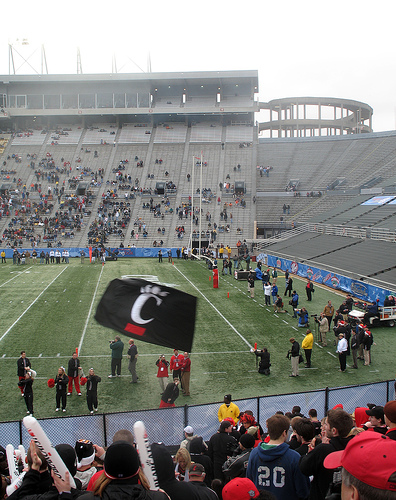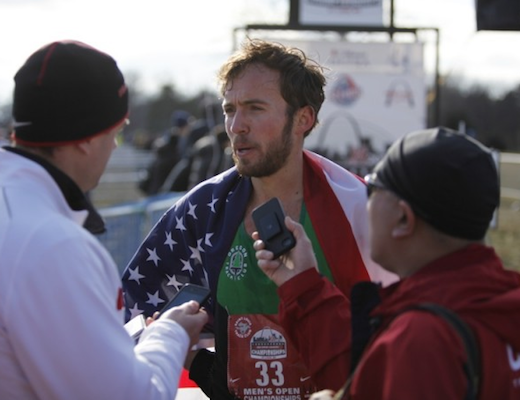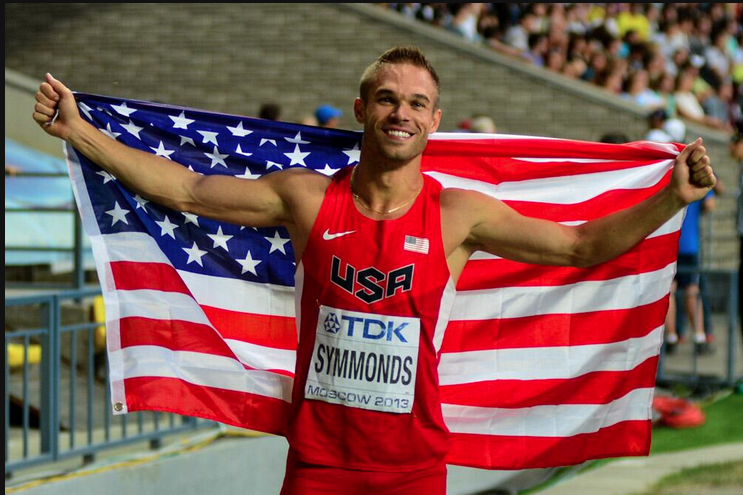Inequality Killing College Sports
Jesse Squire | On 03, Jan 2014
The current thinking is that wealth and income inequality is a scourge that ruins economies and hurts us all. The Pope thinks so. The President of the United States thinks so. America’s best-known Nobel economics laureate thinks so (and has the numbers to prove it).
College sports is negatively affected by wealth inequality as well, and especially in football. A few schools are rolling in dough while virtually everyone else loses money. A recent USA Today study found that less than ten percent of Division I universities have self-sufficient athletic programs; the rest rely on student fees to cover costs. This is important to college track and field because our sport is the canary in the coal mine, the first to die when conditions are hazardous.
As with most things in college sports, football drives this disparity. Pac-12 institutions are experiencing a campus building boom due to TV revenue, and the Big Ten and SEC are also doing quite well. But the vast majority of schools lose money, often lots of it. We hear about eliminated athletics programs all the time (most recently at Robert Morris and Temple).
But nowhere is this disparity worse than in bowl games. The payouts to each team are well-known, and the five biggest bowls pay out 72% more than the other thirty bowls put together. In the smaller bowls, the payouts barely cover the expenses incurred to go (and sometimes not even that).
That’s not the truly crippling part, though. The worst of it is the ticket allotment that every university is required to buy and then attempt to resell to its fans. The typical allotment is in the range of 15,000 tickets and at a face value of $70 or so (and 15,000 X $70 is more than $1,000,000). This year, only fifteen of the seventy teams playing in bowls sold out their tickets. Even the Orange and Fiesta Bowls were not sellouts. And they’re not going to be, not when the bowl itself undercuts via Groupon or when tickets go as low as $0.01 on StubHub.
Is it time to evict big-time college sports from American universities? Perhaps. First I’d try evicting the bowl games, the “non-profit” games that suck money from universities and the communities that host them and into the pockets of the (largely unaccountable) “bowl committees” who run them. I say they should all go away and we should have a playoff instead. As much as people like to knock around the NCAA, remember that 96% of its revenue is returned to member schools–and just how much money do you think a football playoff between 16 or 24 teams would generate? Best of all, it would eliminate the situation where “mid-major” teams lose money by qualifying for the post-season.
That money wouldn’t eliminate inequality in Division I college sports, but is sure would reduce it. Much of the basketball tournament money returned to member schools depends on the number of sports the institution sponsors and the number of athletic grants-in-aid (“scholarships”) it hands out. In other words, the NCAA helps defray the cost of doing business. The more sports you have, the more money you get from the NCAA. If a football playoff could double or triple that money, then I bet we’d see a lot fewer track teams biting the dust.
OK, enough of that. News links…
News
Runner’s World has all of yesterday’s news, including an interview with Nick Symmonds about his switch from Nike to Brooks. When Symmonds talks about his now-severed relationship with Nike Corporate, you can almost hear the Darth Vader theme music…
This piece from Ken Goe for the Oregonian makes it clear that Symmonds declined to resign with Nike rather than the other way around.
USATF announced its thirty-strong team for the 25th BUPA Great Edinburgh Cross Country race on Saturday, January 11 in Edinburgh’s Holyrood Park. USATF.tv will have a live stream of the competition from 8:15am (ET). There are junior and senior races, with competition between teams representing the USA, the UK, and Europe. The biggest names entered are defending champion Bobby Mack and Chris Derrick, the reigning US cross country champion.
More from USATF
Kenyan news: World champion miler Asbel Kiprop is to be charged with assault. He allegedly beat up a security guard when he wouldn’t let Kiprop into the bar after closing time.
More from People.ke
But Kiprop denies it and blames the local media.
More from Standard Media
Garry Hill explains how Track and Field News selects its Athletes of the Year.
More from Track and Field News
Race results
Toyo University won the Hakone Ekiden, Japan’s national collegiate road relay championship (and the nation’s most popular sporting event) with the second-fastest time in race history. All 23 university teams had a sub-29:00 runner (for 10k) and all eight of Toyo’s did, whereas all of US collegiate running totaled just 13 last year.
More from Japan Running News
Video of the day
Here are the Day 2 highlights of the Hakone Ekiden. Besides the racing itself, check out the crowds and the effort put into video production.



















Submit a Comment